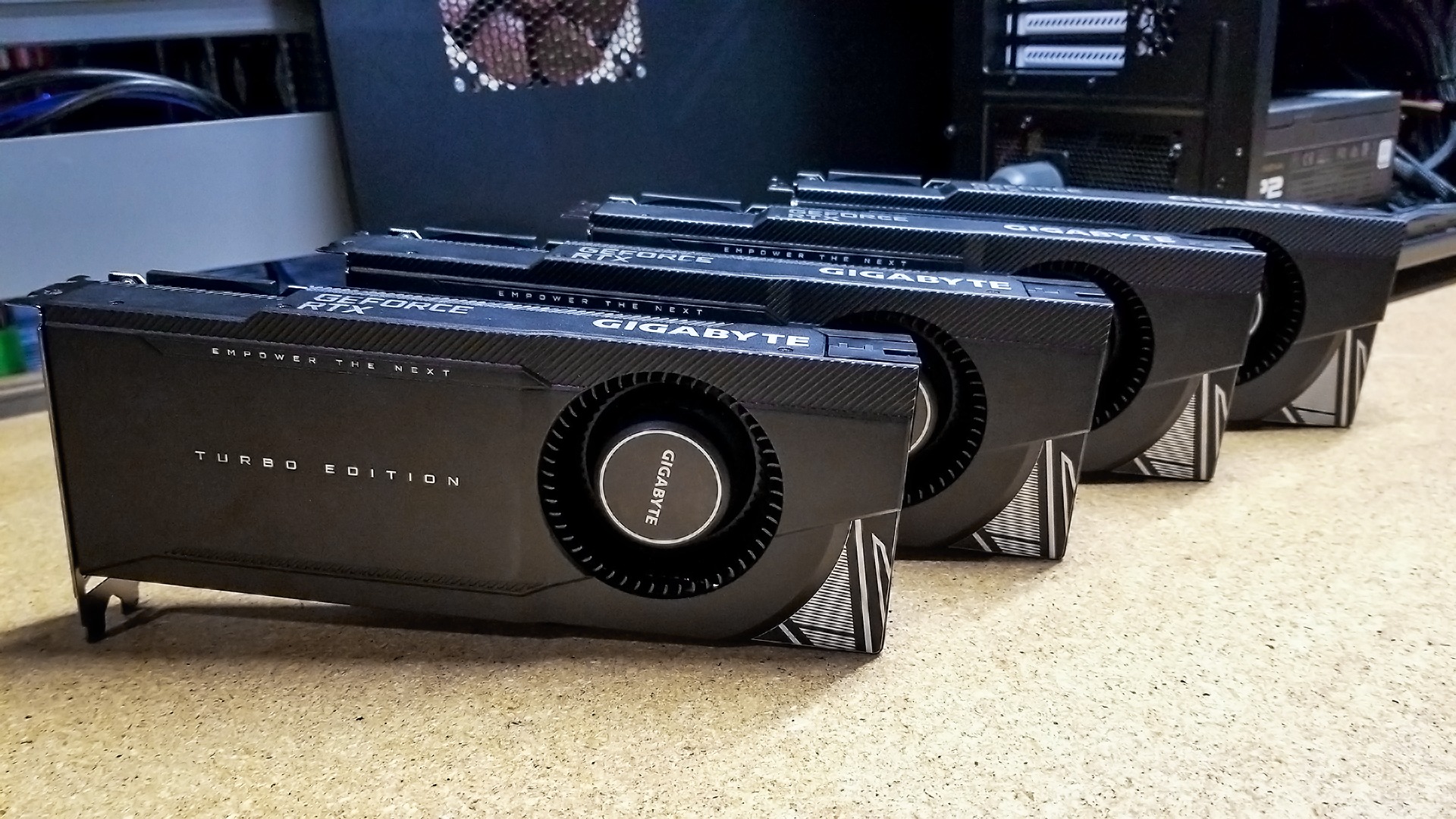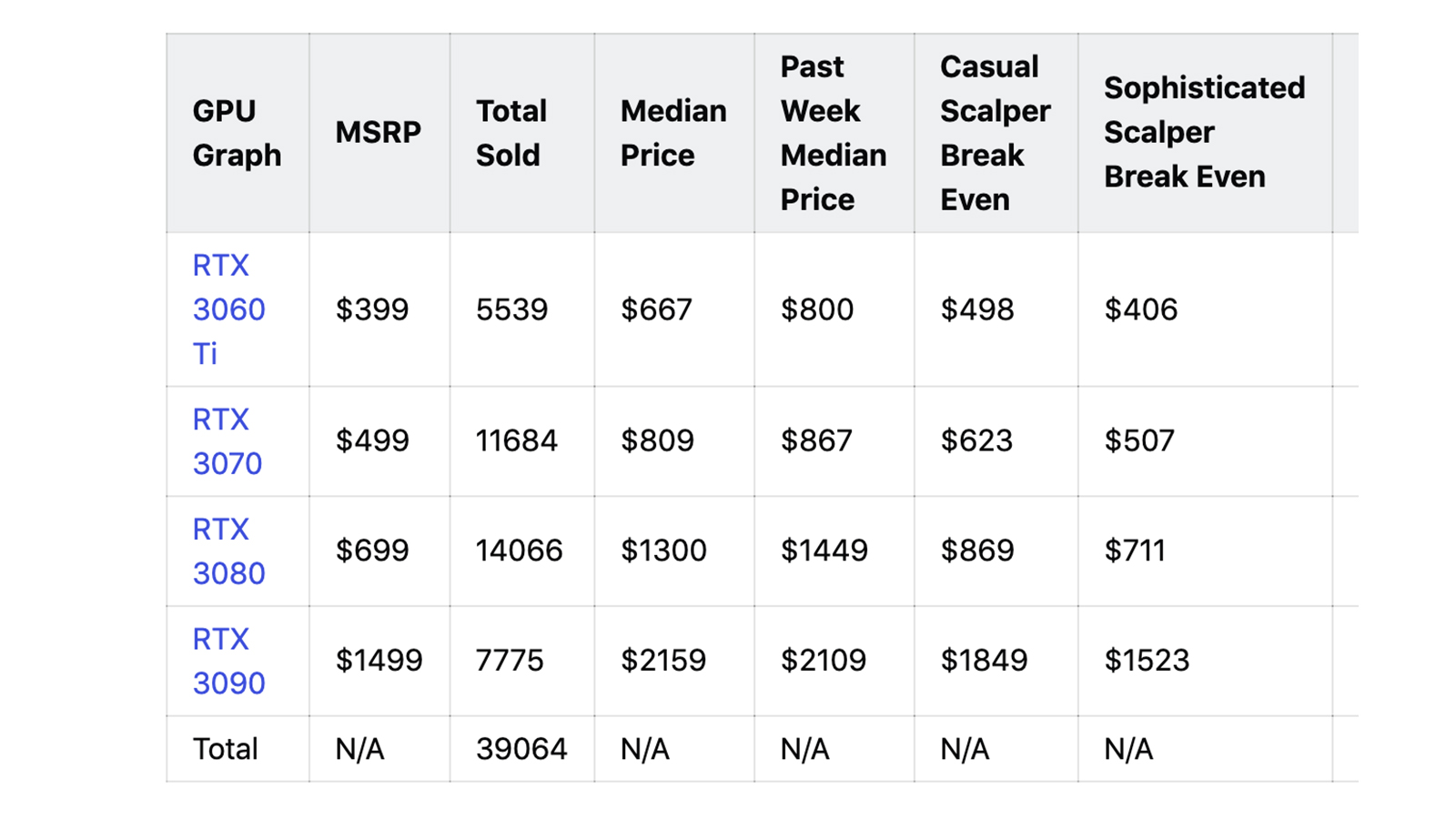Profiteers resold nearly 50,000 Nvidia RTX 30-series GPUs on eBay and StockX
They racked up $15.2m in profits from gamers' pain

Profiteers resold nearly 50,000 Nvidia Ampere graphics cards in the past several months on sites like eBay and StockX, raking in roughly $61.5 million in sales and a profit of $15.2 million.
Oracle data engineer Michael Driscoll wrote up a web script that scraped data from eBay and StockX – a resale site normally used for hard-to-find sneakers – to quantify the scale of the graphics card profiteering and what he found is depressing, but not surprising.

So far, 49,680 RTX 30-series graphics cards have been sold through the two sites, ranging from the lower-end RTX 3060 Ti to the high-end RTX 3090, with the bulk of the sales coming from the RTX 3070 and RTX 3080.
Driscoll has also analyzed AMD Big Navi profiteering since it's release and found that it is far less prevalent than with Nvidia's Ampere cards, with just 3,461 RDNA2 graphics cards between the two sites. This indicates a much lower demand for Big Navi cards, at least among those willing to pay a huge mark up for the privilege of owning a hard-to-find GPU.
It was still profitable, though. With around $3.95 million in sales of the three Big Navi cards, profiteers were able to rake in almost $1 million in profit.
To make matters worse, PCMag points out, a new 25% US tariff went into effect on January 1 that includes GPUs imported from China, so prices went up even more, across the board.
- Newegg introduces new lottery system for scarce PS5s, RTX 3080s, and more
- MSI might release an Nvidia RTX 3060 Ti just for crypto mining
- We'll show you how to build a PC
Profiteering isn't new and it isn't going anywhere
Profiteering, usually referred to with the highly problematic term "scalping," is about as old as civilization. Whether it's flour, medicine, or graphics cards, someone somewhere is going to take advantage of scarcity and demand to extract as much profit as they can from a commodity.
Get daily insight, inspiration and deals in your inbox
Sign up for breaking news, reviews, opinion, top tech deals, and more.
We're seeing the same thing happen with the new AMD Zen 3 CPUs as well as Xbox Series X|S and PS5 consoles, which has been largely thanks to bots have definitely tilted the playing field in ways that we only used to see with royal charters, monopolies, and trusts.
Social media also hasn't helped matters at all. While profiteering isn't new, seeing them anonymously gloat and rub their scheming in the face of an angry public definitely is.
Congratulations to our members 🎉In less than 24 hours of the release of the PS5 and our members have secured over 2,500 consoles this morning.Stop missing out, reselling isn't going away so jump in fast and maximise your profits. pic.twitter.com/WUTBFWNHfENovember 20, 2020
Manufacturers and retailers are trying to combat the problem by reviewing orders before shipping the product and even using a lottery system for purchases. How effective these moves will be is anyone's guess, but if we had to put money on it, we'd bet on greed every time.
- Stay up to date on all the latest tech news with the TechRadar newsletter

John (He/Him) is the Components Editor here at TechRadar and he is also a programmer, gamer, activist, and Brooklyn College alum currently living in Brooklyn, NY.
Named by the CTA as a CES 2020 Media Trailblazer for his science and technology reporting, John specializes in all areas of computer science, including industry news, hardware reviews, PC gaming, as well as general science writing and the social impact of the tech industry.
You can find him online on Bluesky @johnloeffler.bsky.social